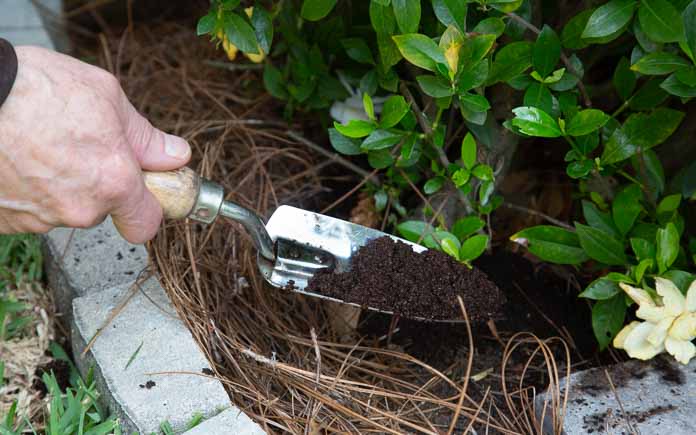Did you know you can recycle coffee grounds for plants to use in your garden?
Horticulturists praise coffee grounds for acidifying soil and enhancing plant growth.
Coffee grounds are slightly acidic (5.5 to 6.8 pH), so certain acid-loving plants like azaleas, rhododendrons and gardenias love them.

They contain about 2 percent nitrogen, 0.06 percent phosphorus, and 0.6 percent potassium by volume, according to the University of Wyoming Extension. They also contain many micronutrients including calcium, magnesium, boron, copper, iron, and zinc.

Here’s how to use them in your garden:
After you’ve had your morning cup of joe, save the used coffee grounds in a plastic container. You should have enough grounds after about a week or so to use in your garden.
To use them as a soil amendment for your plants, rake back the mulch to expose the soil. Then, use a small garden trowel to spread the coffee grounds around the base of the plant. Only spread the grounds about a quarter of an inch thick.
And then, of course, rake the mulch back just to protect the soil and keep the weeds down.
Add a thin layer of grounds to the plants about once a month, and you’ll see a much healthier plant with many more blooms.
By the way, if you don’t have coffee, you can also use tea leaves just be sure to take it out of the tea bag first.
Further Reading

